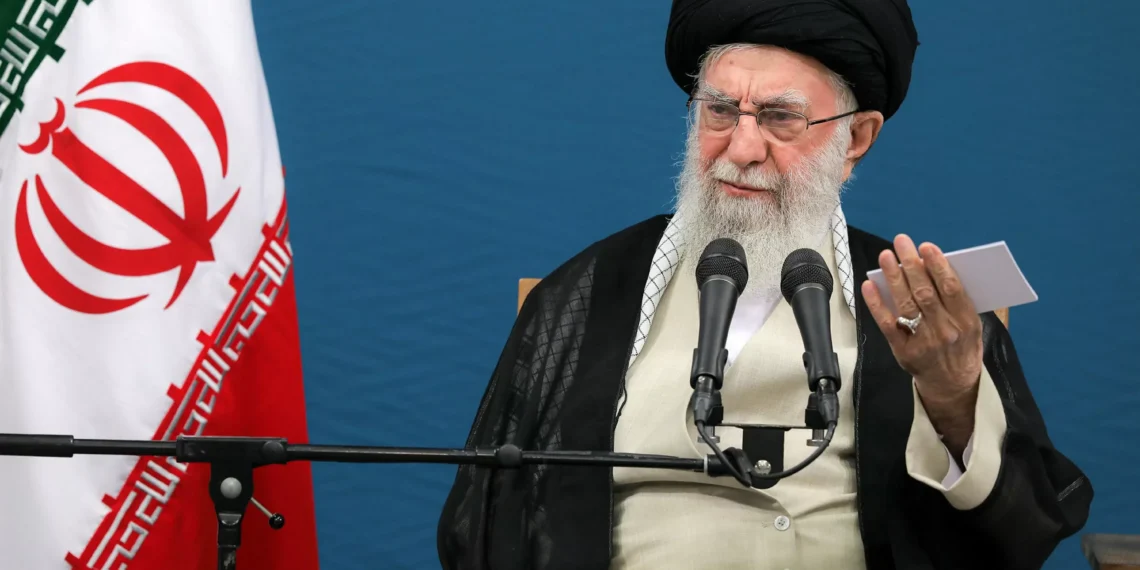Iranian Supreme Leader Ayatollah Ali Khamenei has recently given a glimmer of hope for renewed talks with the United States over Iran’s nuclear program. In a surprising move, Khamenei hinted at the possibility of negotiations during a meeting with Iran’s civil servants on Tuesday.
The Iranian Supreme Leader’s statement comes at a critical time, as tensions between the two nations have been escalating in recent months. The U.S. withdrew from the 2015 nuclear deal with Iran last year and imposed harsh economic sanctions, which have severely impacted the Iranian economy. In response, Iran has gradually decreased its compliance with the nuclear deal and resumed some of its nuclear activities.
However, Khamenei’s remarks have raised hopes for a possible resolution to this ongoing conflict. He stated that “negotiations with the U.S. could be possible if they lift the sanctions and return to the nuclear deal.” This is a significant shift in tone from the Iranian leader, who has previously been staunchly opposed to any talks with the U.S. and has referred to them as “the Great Satan.”
Khamenei’s statement is a positive sign that Iran is willing to engage in diplomatic efforts to resolve the nuclear issue. It shows that the Iranian leadership is open to finding a peaceful solution instead of resorting to further escalation and conflict. This is a welcome change, as the tensions between the two nations have raised concerns of a potential military confrontation, which would have disastrous consequences for the entire region.
The Iranian Supreme Leader’s remarks also highlight the effectiveness of the maximum pressure campaign by the U.S. The sanctions have undoubtedly put immense pressure on the Iranian economy, forcing the government to reconsider its stance on negotiations. It is a testament to the success of the U.S.’s strategy in bringing Iran to the negotiating table.
The prospect of renewed talks between Iran and the U.S. is a positive development not only for the two nations but also for the international community. The 2015 nuclear deal, also known as the Joint Comprehensive Plan of Action (JCPOA), was a result of years of negotiations and involved multiple countries. It was a significant achievement in promoting global peace and stability, and its collapse would have severe consequences.
The U.S.’s withdrawal from the JCPOA has been widely criticized by the international community, including its allies. The European signatories have been trying to salvage the deal and have even set up a mechanism to bypass U.S. sanctions. However, their efforts have not been successful in mitigating the impact of the sanctions on Iran’s economy. Therefore, the possibility of renewed talks between Iran and the U.S. is a ray of hope for the revival of the nuclear deal and maintaining peace in the region.
Moreover, the potential talks between Iran and the U.S. could also pave the way for addressing other issues that have strained their relations. These include Iran’s support for militant groups in the Middle East, its ballistic missile program, and its human rights record. Dialogue and negotiations are crucial in resolving these issues and promoting stability in the region.
It is essential to note that Khamenei’s statement is not a guarantee of renewed talks. The U.S. has consistently maintained that it will only engage in negotiations if Iran meets certain conditions, including stopping its nuclear activities and supporting terrorism. However, Khamenei’s remarks show a willingness to negotiate and should be seen as a positive step towards finding a solution to the nuclear issue.
In conclusion, Iranian Supreme Leader Ayatollah Ali Khamenei’s hint at renewed talks with the U.S. over its nuclear program is a positive development that should be welcomed by the international community. It shows that Iran is open to diplomatic efforts to resolve the issue and avoid further escalation. The U.S. should take this opportunity to engage in meaningful negotiations and work towards finding a solution that benefits both nations and promotes global peace and stability.






